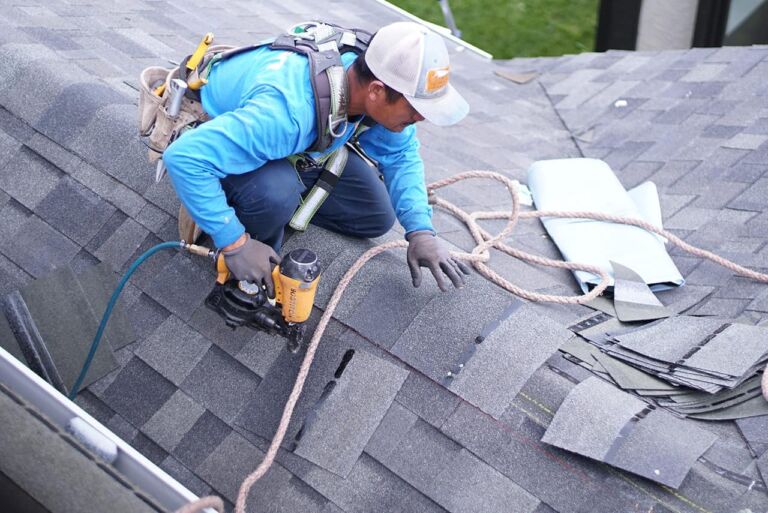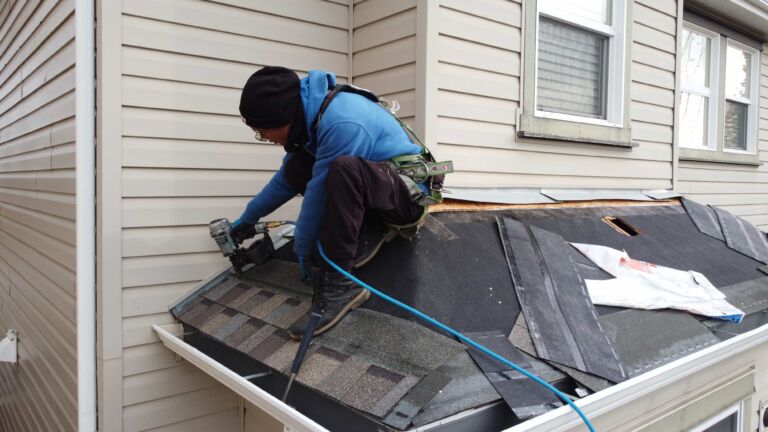
Imagine you’re about to pull into a mechanic for an oil change and someone wearing a dusty blue blazer beckons you to roll down your window before you pull in.
“Ten bucks,” he says. He smells strongly of beef jerky. “Best ten dollars you’ll spend today.”
It’s not a good look, not to mention smell.
Highly technical jobs come with a price tag, whether we love it or not. Haggling might be an option for buying bruised fruit but is never a good tactic for handling professional home repairs. Materials, technical skills, and time aren’t free, and sadly, are very rarely cheap. While No Payne Roofing approaches the budget of every job with care, we are dedicated firstly to doing the job right.
By inviting haggling into the conversation, you are creating an environment that pressures the tradesman into a situation where they may compromise quality in favour of winning your business. That means that any savings you take home now will turn into even bigger spending down the road.
Rather than haggling your tradesman, we suggest the following to ensure you feel you are getting the value you deserve out of your spending.
Do Your Company Research
Company rates can differ as much as their effectiveness can. Researching your roofing company reveals the level of detail they bring to their jobs and how committed they are to educating their customers on the value they are receiving.
Other things to consider—what do their reviews say about satisfaction? Is there consistent follow-up? Haggling may lead to a lower rate but make you liable for any patches or refurbishing afterwards. This is especially important for jobs done under inclement weather conditions.
Premium prices should mean premium service. Researching the past work of your tradesman will illuminate where those costs are going and how it can make your life easier for both the short term and for years to come.
Understand the Long-Term Savings
Like buying specialist hardware or high-quality clothes, the upfront cost between comparable products can drastically alter how we perceive our options. It might just be part of our wiring as humans—thinking in short-term increments rather than in a longer, more involved narrative.
You should always consider projects in the long run. A more expensive project (when properly implemented) should always reap savings in the long-run. For roofing, these savings appear through lower maintenance costs, higher efficiency in your utilities, and more extended periods between replacements.
By thinking of projects in the long-term, you avoid the panic of seeing high costs as unnecessary. Leave the haggling to us and our suppliers—focus on the right choice for keeping your home and your family safe and comfortable.
Pursue Other Estimates
Now, you’ve researched your quote provider and mapped out the savings. Somewhere, however, the numbers aren’t adding up. If you’ve done your due diligence as a customer and still feel as if you’re not getting the information you need from a service provider, by all means—pursue another estimate!
Companies differ vastly in their approaches and access to materials. Similarly, they may lack the experience to know where more cost-effective solutions may be implemented. A second opinion means that you are getting more eyes on your project and greater opportunities for creative solutions that could offer savings.
Working cost-effectively is never unreasonable, so long as you respect the work process and what your tradesman needs to succeed. Likewise, a professional should provide their services on a reasonable budget. Second opinions are the quickest option for bridging the concerns of both parties with confidence.
We want our customers to feel secure and confident in purchasing our services. We educate clients before and after the job, so they know the product they are receiving does not come with hidden costs, unnecessary improvements, or longevity concerns.
When you haggle, you invite your tradesperson to do a worse job—cutting corners and providing inferior services to earn your business. You may be doing your wallet a favour in the short term, but you are risking your finances and home security in the long run.
Do you want to learn more about the process? Or are you looking for a second opinion on a recent quote? Reach out to us to get started on the right foot and finish strong.





